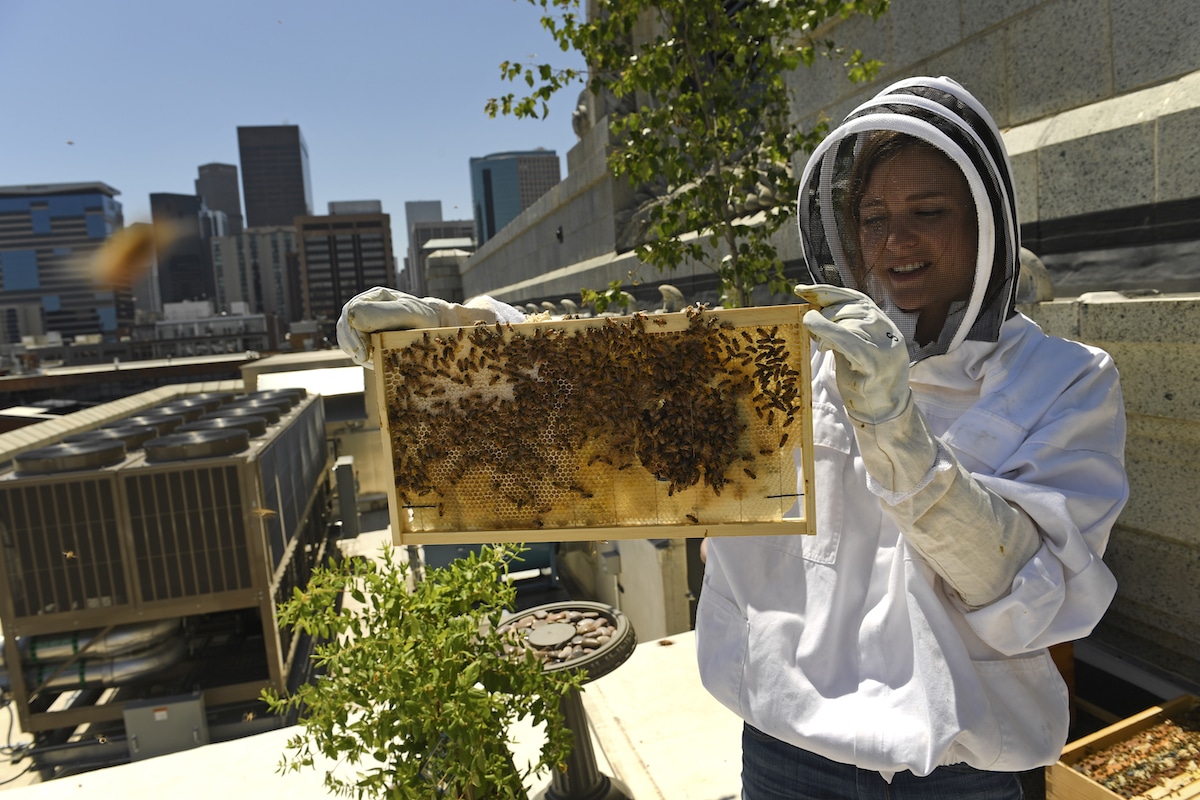
Urban beekeeping is an innovative practice gaining popularity in cities worldwide. As urbanization continues to expand, the need for sustainable practices within city environments becomes increasingly important. Urban beekeeping not only supports biodiversity but also promotes local food production and environmental awareness.
The Benefits of Urban Beekeeping
- Pollination: Bees are essential pollinators, and their presence in urban areas helps support the growth of plants and gardens. This, in turn, enhances the green spaces within cities, contributing to better air quality and a more pleasant urban environment.
- Biodiversity: By keeping bees in cities, urban beekeepers contribute to maintaining and increasing local biodiversity. Bees pollinate a wide variety of plants, supporting ecosystems and benefiting other wildlife.
- Local Honey Production: Urban beekeeping provides a source of local, sustainable honey. This honey can be sold or shared within the community, reducing the carbon footprint associated with transporting food over long distances.
- Education and Awareness: Urban beekeeping raises awareness about the importance of bees and the challenges they face, such as habitat loss and pesticide use. It also provides educational opportunities for schools and communities to learn about sustainability and the environment.
How Urban Beekeeping Works
Urban beekeepers set up beehives on rooftops, balconies, and in gardens. These hives are carefully managed to ensure the health and safety of both the bees and the people living nearby. Key considerations include:
- Location: Hives need to be placed in sunny, sheltered spots with access to a variety of flowering plants.
- Hive Management: Regular monitoring and maintenance of hives are crucial. This includes checking for diseases, ensuring the bees have enough food, and managing the hive population.
- Regulations: Urban beekeeping must comply with local laws and regulations. Beekeepers should be aware of these requirements and ensure their practices are in line with them.
Getting Started with Urban Beekeeping
For those interested in urban beekeeping, here are some steps to get started:
- Education: Learn about bees and beekeeping through books, online resources, or local beekeeping associations.
- Training: Attend workshops or courses to gain practical experience and knowledge.
- Equipment: Invest in essential beekeeping equipment, including hives, protective clothing, and tools.
- Join a Community: Connect with local beekeepers for support, advice, and collaboration.
Conclusion
Urban beekeeping is a rewarding practice that benefits both the environment and local communities. By cultivating honey and promoting sustainability, urban beekeepers play a vital role in enhancing city life and supporting ecological balance. Whether you’re interested in producing honey, supporting biodiversity, or educating others, urban beekeeping offers numerous opportunities to make a positive impact.


